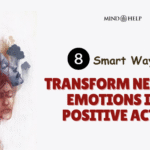Mental Illness Awareness Week (MIAW) is underway across the United States, with the National Alliance on Mental Illness (NAMI) leading a nationwide call for grassroots community support. Running October 5–11, 2025, this annual observance shines a powerful spotlight on the realities of mental illness and advocates for increased understanding, compassion, and access to treatment for millions affected. This year’s theme focuses on uniting communities to break stigma and foster direct connection to mental health resources at the local level.
NAMI has long championed Mental Illness Awareness as a critical step toward building a society where those living with mental health challenges can find help without fear or discrimination. The organization emphasizes the importance of educating communities, promoting early intervention, and mobilizing support networks that can make a practical difference. Grassroots efforts—such as local events, support groups, and educational campaigns—are central to NAMI’s strategy because they reach individuals in their own neighborhoods and break down barriers to care.
The importance of Mental Illness Awareness cannot be overstated. Mental health disorders affect approximately one in five adults in the US annually, yet many suffer in silence due to stigma and misinformation. Conditions such as depression, anxiety, bipolar disorder, and schizophrenia can be debilitating without proper support but are treatable with early and comprehensive care. Raising awareness helps change public perception from fear or misunderstanding to empathy and informed action.
During Mental Illness Awareness Week 2025, NAMI encourages communities, employers, families, and schools to get involved through social media campaigns, educational workshops, and advocacy efforts. The goal is to spark conversations about mental health, dispel myths, and ensure people know where to find help. By creating supportive environments, individuals impacted by mental illness can feel valued, understood, and empowered to seek treatment.
Local chapters play a vital role in these efforts by hosting peer-led support groups and outreach programs that reduce isolation and encourage sharing experiences. This grassroots approach enables people to connect directly with others who understand their challenges and receive practical assistance navigating mental health systems. Many chapters also engage in policy advocacy, pushing for improved funding, healthcare services, and workplace accommodations that reflect modern mental health needs.
Mental Illness Awareness Week acts as both a reminder and a rallying cry. It reminds the general public that mental illness touches countless lives and remains a public health priority. At the same time, it rallies advocates and communities to take continuous action beyond the awareness week dates—to sustain momentum and support for mental health nation-wide. NAMI’s lasting vision is a future where mental illness is treated openly and compassionately, with resources available to all who need them.
The week also highlights emerging challenges and innovations in mental health care. For example, digital mental health platforms and teletherapy have grown in importance, especially in rural areas with limited clinic access. Community-based interventions tailored to diverse populations ensure mental health support is inclusive and equitable. Through Mental Illness Awareness initiatives, these advances gain wider recognition and integration into everyday care.
Over the years, Mental Illness Awareness Week has contributed significantly to policy changes and reduced stigma. Public attitudes have shifted, but significant work remains to close treatment gaps and address social determinants of mental health. NAMI’s grassroots model it promotes during the week exemplifies that meaningful change requires participation at every level—from individuals sharing their stories to policymakers enacting supportive legislation.
In conclusion, the 2025 Mental Illness Awareness Week serves as a crucial platform for NAMI and the broader mental health community to unite efforts across the country. By fostering grassroots community support, the initiative strives to build stronger networks, increase access to care, and improve lives for those affected by mental health conditions. Sustained commitment to Mental Illness Awareness encourages a cultural shift toward acceptance, understanding, and hope.
Frequently Asked Questions (FAQs)
What is Mental Illness Awareness Week?
Mental Illness Awareness Week is an annual campaign led by NAMI to increase public understanding, reduce stigma, and promote support and treatment for mental health conditions.
Why is Mental Illness Awareness important?
Raising awareness helps change negative perceptions and encourages early intervention, which can significantly improve outcomes for people living with mental health challenges.
How can communities support Mental Illness Awareness?
Communities can host educational events, participate in social media campaigns, support local mental health resources, and engage in advocacy efforts to improve care and reduce stigma.






